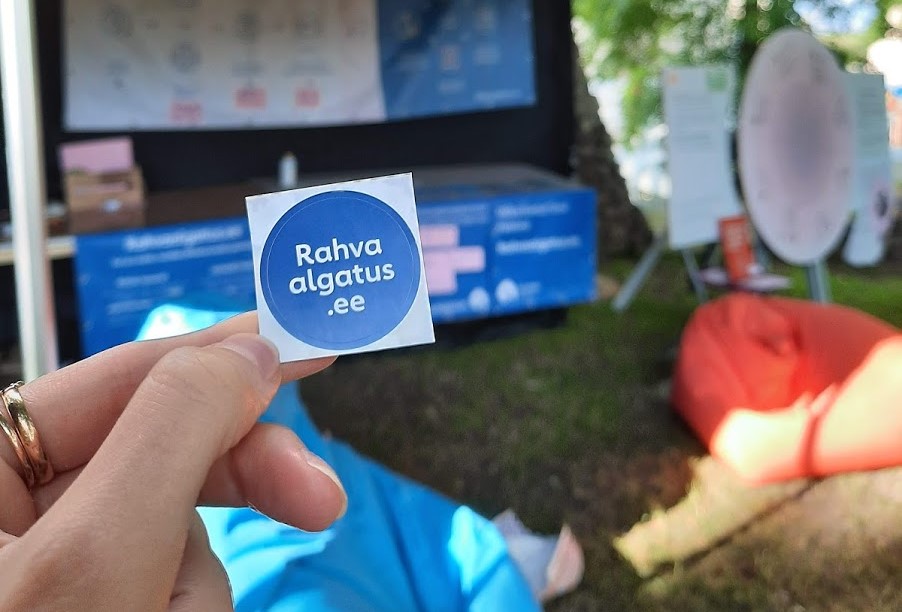The Estonian laws prescribe that citizens have the power to amend, repeal or introduce local legislation if 1% of a municipality’s residents support them. Local petitions with that support are brought to the municipality, where citizens and politicians discuss it together.
For many years, this law was vastly underused. While some municipalities had established avenues for citizen participation, they were less widely available and publicised. This changed when the Estonian Cooperation Assembly launched Rahvaalgatus.ee. First introduced on a parliamentary level, the organisation launched the platform for the municipal level three years ago. Since then, citizens can use their right to be involved in decision-making in a digital process on Rahvaalgatus.ee.
The implementation process for Rahvaalgatus.ee on the local level has not been easy. Municipalities had to adjust from a culture where elected officials made decisions primarily by themselves to a more open government. “There has been somewhat of a participatory revolution”, Kairi Tilga says. By 2022, citizens in almost half of the municipalities had used the platform for their petitions. Over 4% of the population had given their signatures to support various causes.
Bracing for the learning curve for local petitions
The implementation process for Rahvaalgatus.ee on the local level has not been easy. Municipalities had to adjust quickly from a culture where elected officials made decisions primarily by themselves to a more open government. “There has been somewhat of a participatory revolution”, Kairi Tilga says. By 2022, citizens in almost half of the municipalities had used the platform for their petitions, and over 4% of the population had given their signatures to support various causes.
The law states that once a petition reaches the initial number of signatures, politicians and the initiating citizens meet to discuss the issue. Citizens and municipalities are now in more dialogue, but Kairi Tilga has noticed that the two parties lack practice in talking to each other. “There have been quite some conflicts between [the two parties], and we are trying to figure out how we can improve that”, she explains.
For everybody involved, there is a lot to learn. Municipalities have needed to learn how to engage with their citizens openly and to act on issues before they turn into real conflicts. Citizens have had to learn how to rally supporters behind their cause to effect the change they seek and clearly present their cause and proposed solution in a constructive way that does not focus on conflict.
The Estonian Cooperation Assembly mediates this learning process by facilitating dialogue and advising the municipalities on the benefits of open government. “We pay a lot of attention to how we can motivate and advise the local municipality that gets the proposal; sometimes, there is a lot of frustration or anger. We try to explain why it’s still important to be in dialogue, even when it’s not easy, to process the proposal correctly and openly”, Kairi Tilga remarks.
Challenges behind the platform’s success
Where there is only one governing body on the national level, the 79 municipalities have differing needs and expectations regarding the citizens’ involvement. Making the open government experience as simple and accessible as possible for both parties requires substantial effort of the project team.
For example, citizens can easily monitor the progress of their proposals on the website, but Estonia has no central platform where all municipalities publish their responses to petitions. To make this data available to citizens, the project team manually searches the individual municipal websites and extracts the information to publish on Rahvaalgatus.ee.
The future ahead
In their daily operations, the project team focuses on managing and refining the municipal citizen participation process. The aim is that it becomes as professionalised as the more experienced parliamentary process. They also hope that the Estonian government will soon adjust the participation law to include clear guidelines for petitioning and its digital opportunities.
But eventually, Kairi Tilga hopes that the local petitions will inspire municipalities to facilitate their own participation processes, and Rahvaalgatus.ee will be obsolete: “We have to remember that our mission is not just to run the platform, but to bolster Estonian democracy, and our work is done when it’s not necessary anymore, and that is the best thing that could happen.”
